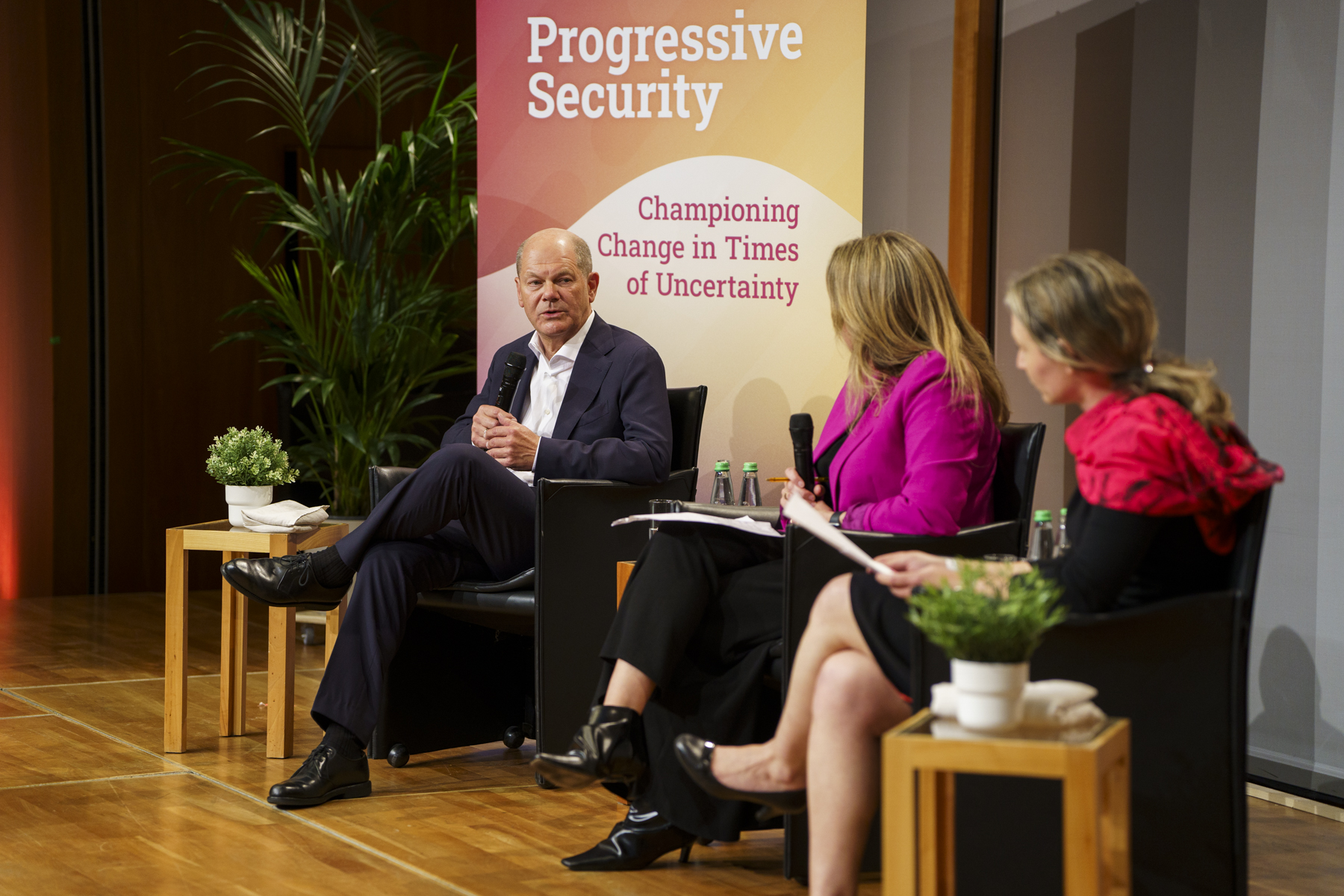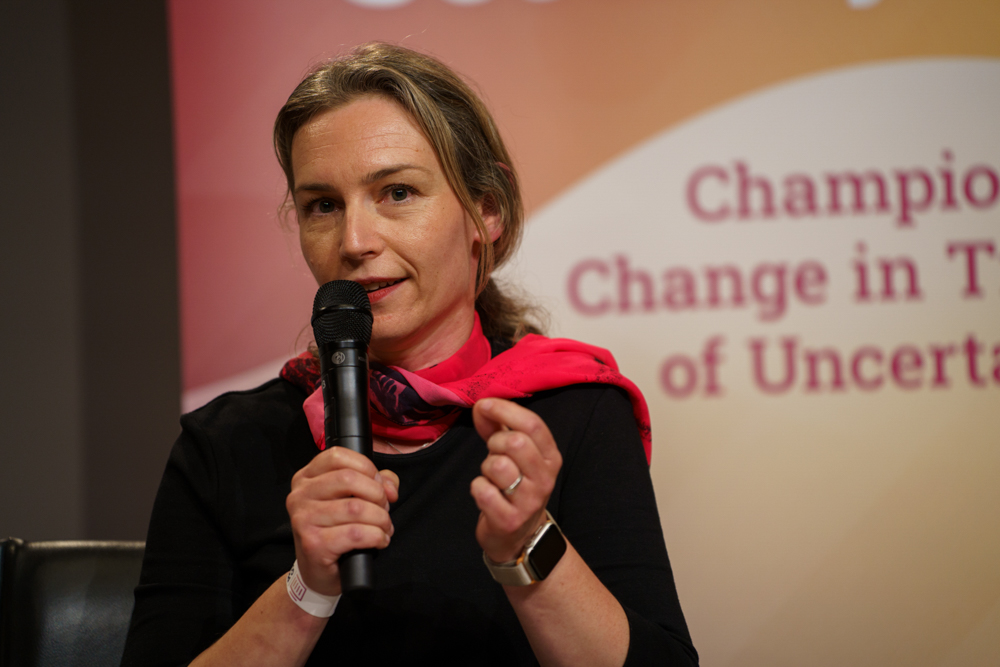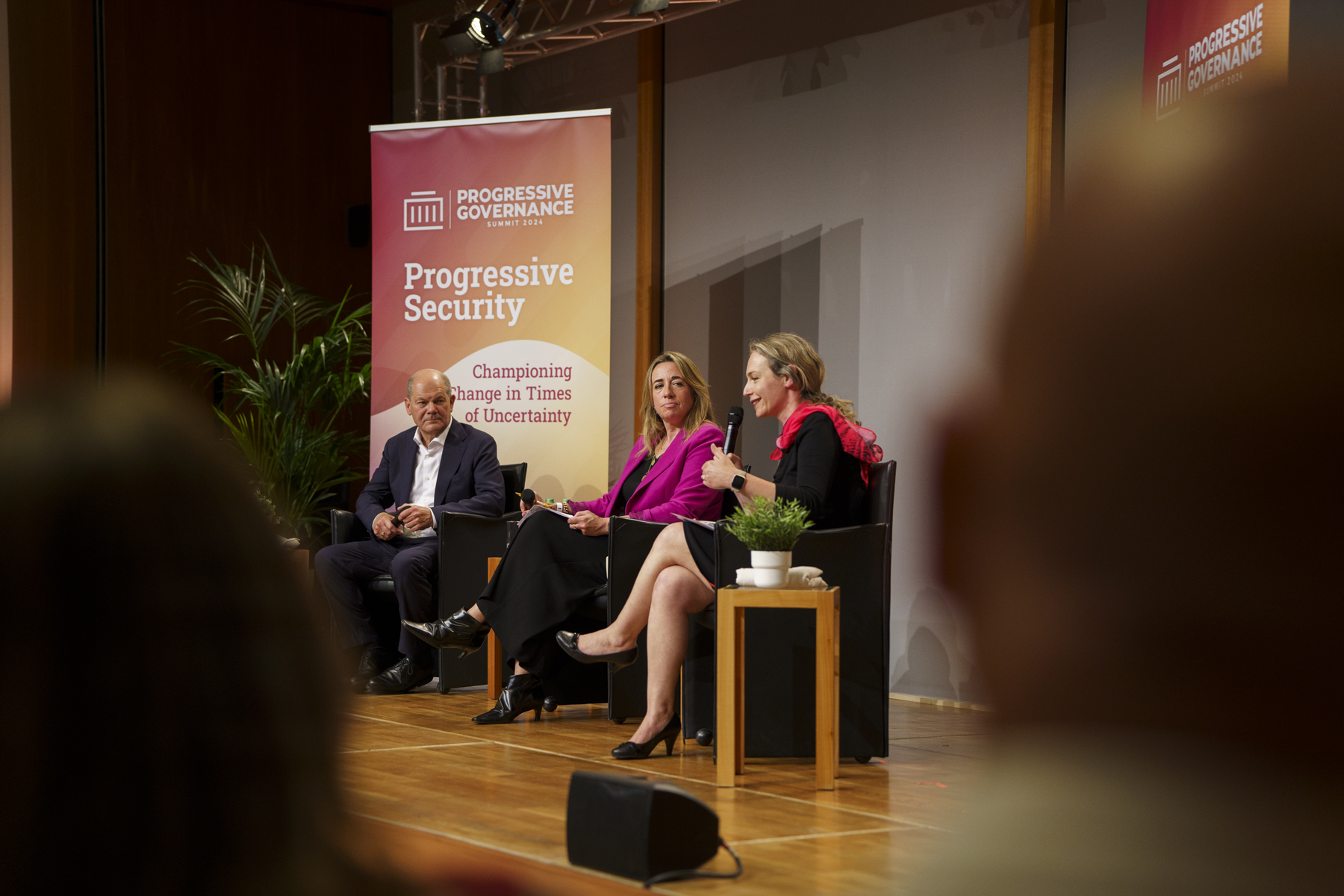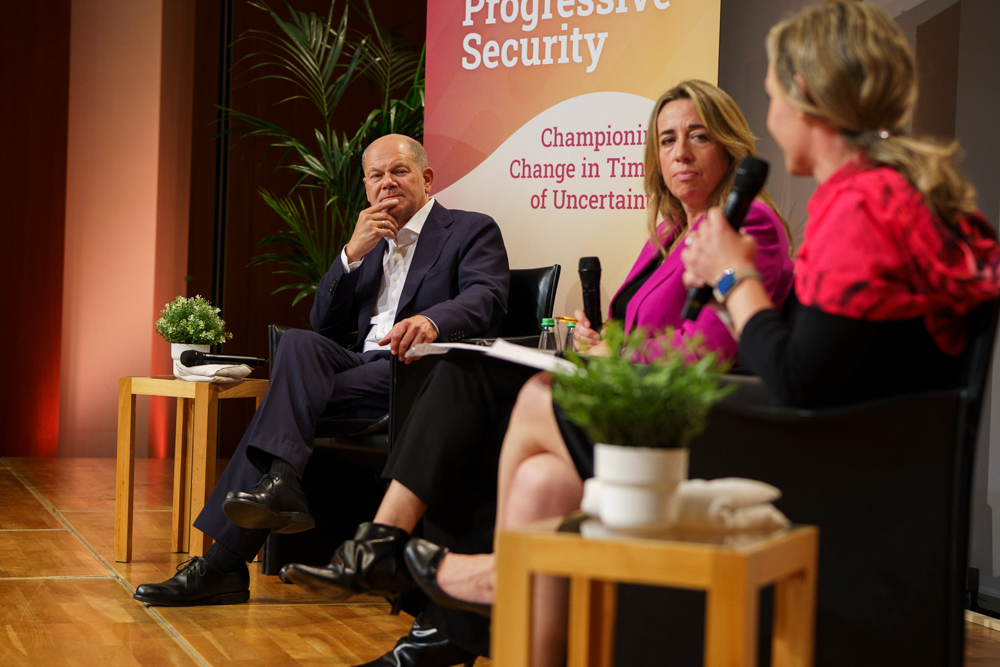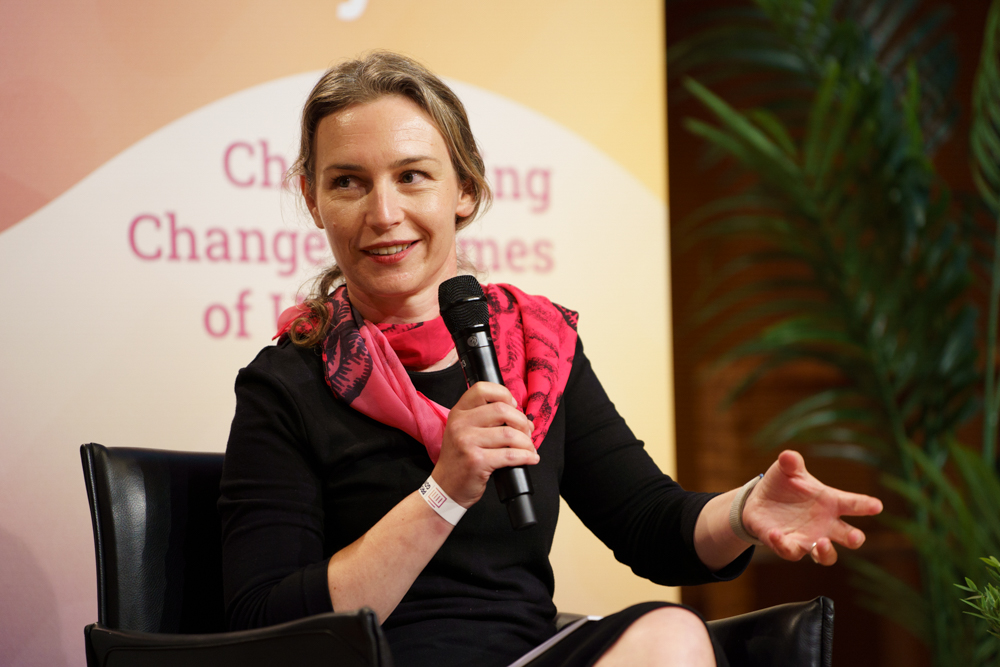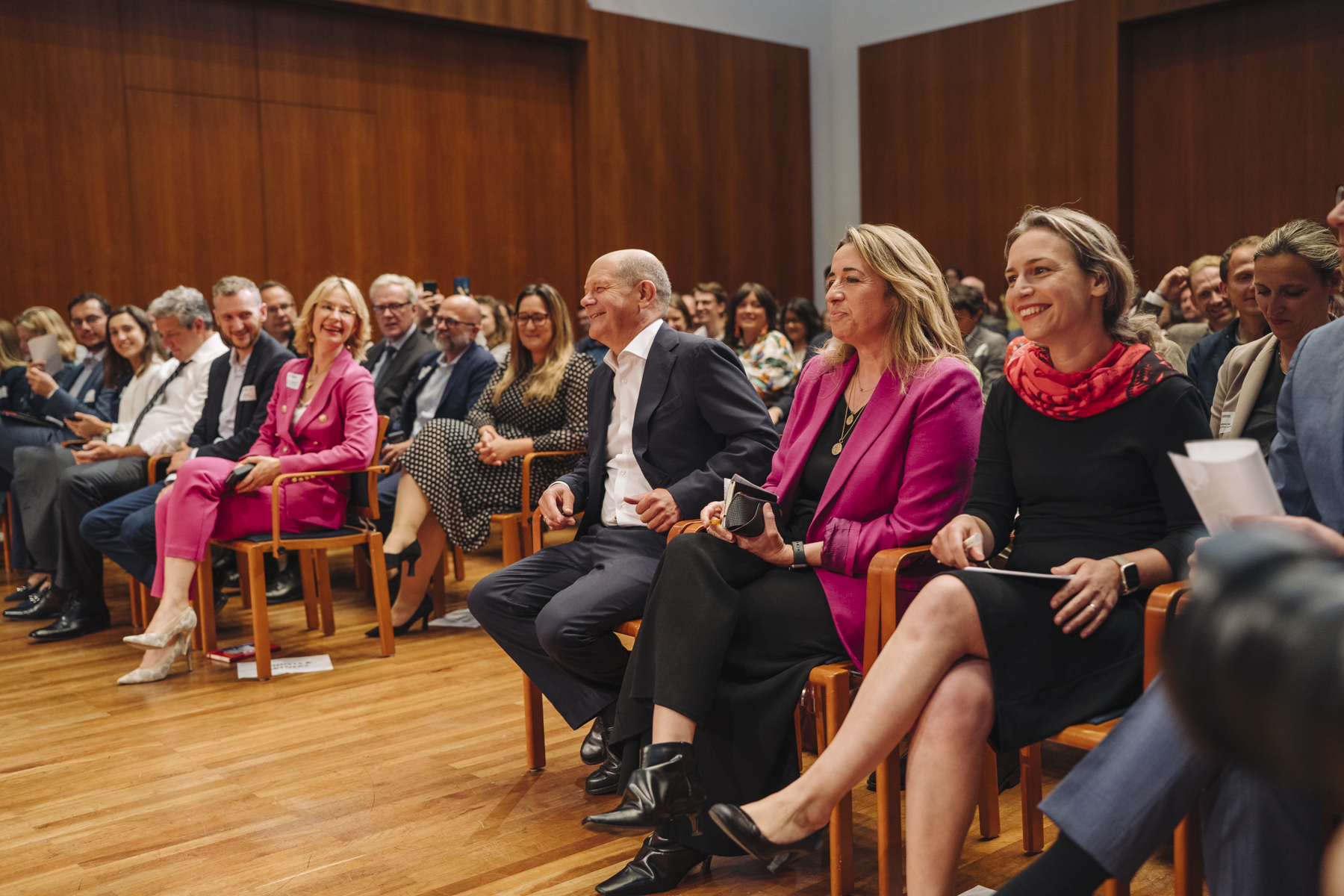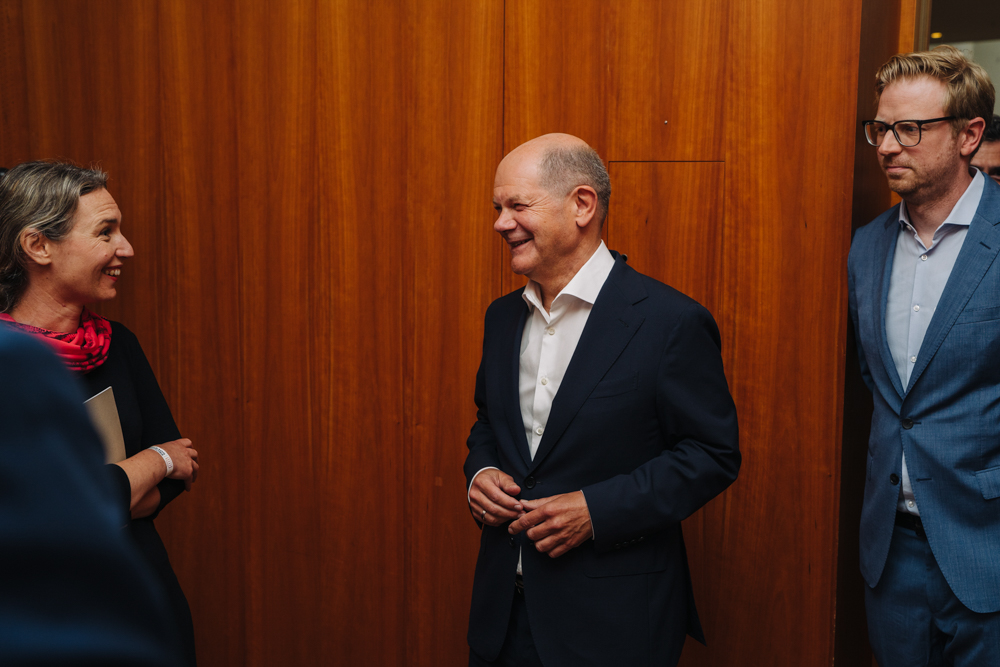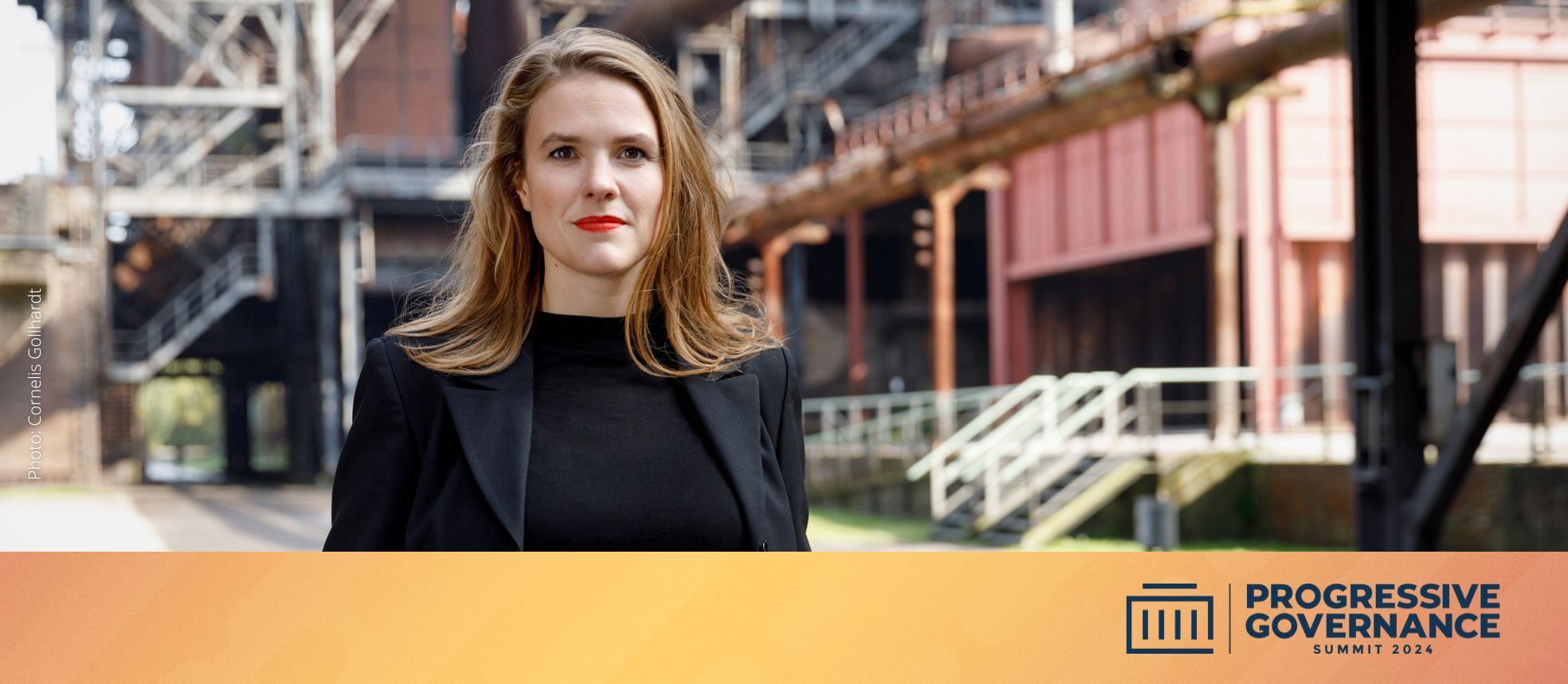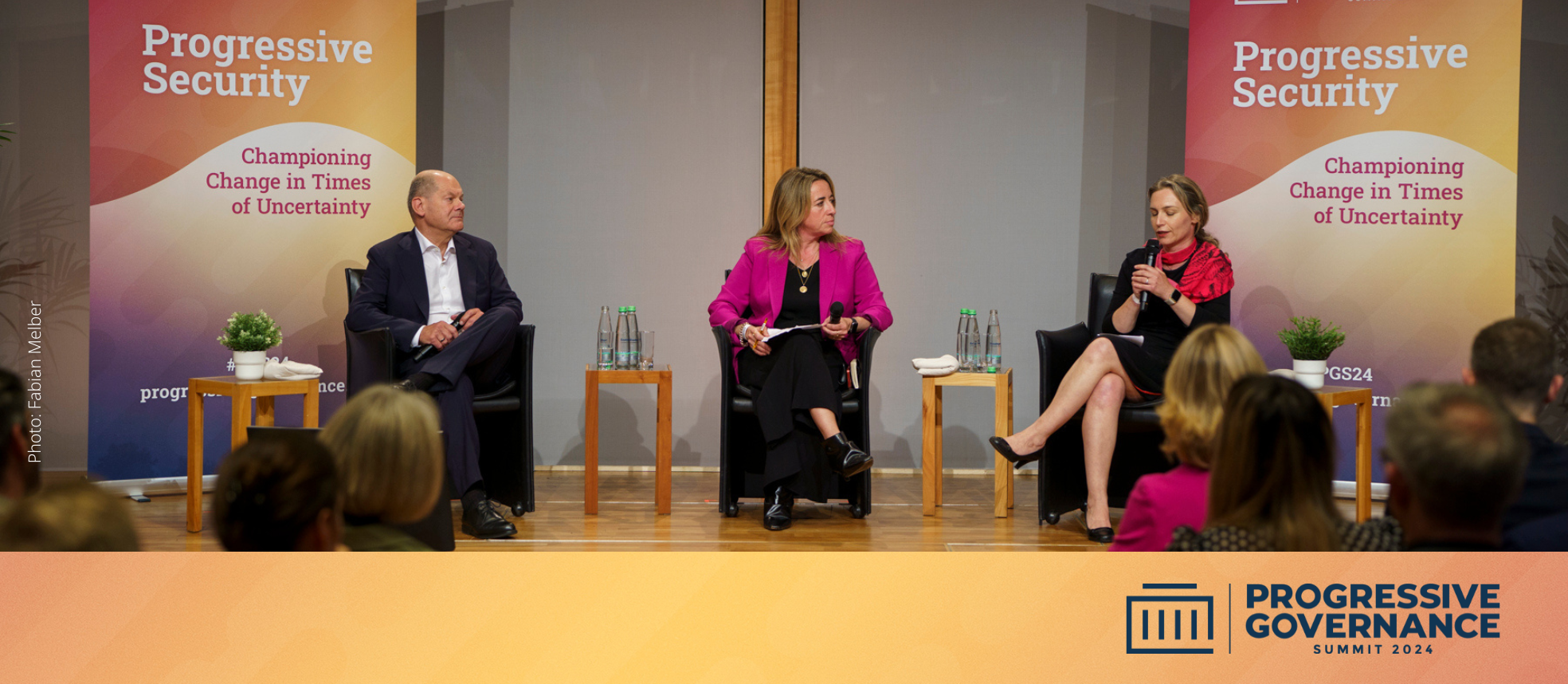
Scholz and Ypi: Dissent for the sake of reclaiming security as a progressive project
#PGS24 Session report by Maria Menzel-Meyer
When debating, we at least subtly tend to aim for consensus – and consider this a noble endeavour for the sake of democracy. How delighting to experience a nudging dissent – in a debate between German Chancellor Olaf Scholz and Lea Ypi, Professor in Political Theory and Political Science at London School of Economics and one of Europe’s leading intellectuals.
Scholz and Ypi met on the panel chaired by The Guardian’s Editor-in-chief Katharine Viner about “Freedom, Peace and Progress in Europe” at the Progressive Governance Summit 2024 in the State Representation of Baden-Württemberg in Berlin. Here, on 21 June – shortly after the European elections – 500 leading intellectuals, activists and policy makers came together to discuss progressive security and the challenges progressives face in the wage of the upcoming elections in the UK, the US, France and Germany. Despite both being progressives, Ypi’s and Scholz’ specific ideas on progressive politics couldn’t be more different.
Ypi, a native of Albania and author of “Free” (2022), considers capitalism a threat for freedom: “Neo-liberalism is indeed the worst evil”, she said – and urged Scholz to make his case from a position and towards a perspective he isn’t used to within the current national political setup of a progressive government and a conservative opposition: towards the left. “Capitalism and democracy are compatible”, Scholz insisted – and argued in two respects: first of all, that there are different models of capitalist markets and secondly, “in my party, the second oldest in Europe, we work for democracy and social welfare as part of a modern economy.” For him, the question is whether we are able to develop democracy in a way that guarantees everybody the chance of a safe development in their life.
What also differs are the questions both consider most important on EU level in order to find a progressive answer to the widespread sentiment of insecurity. “Social democrats have given in on a big part of their narrative when making it about national issues”, Ypi states. The narrative would be driven by the right instead of by a convincing progressive alternative. There would be the urgent need of a genuine European left project, a project that speaks to the question of social justice. Scholz, in contrast, argued for a debate on social cohesion between the nations. The EU as it is would provide a good chance for every country and it’s people to prosper within the framework, giving many people a chance for a better life and refers to the growth in the Baltics, that hasn’t been expected at all in the 1990s.
There is even dissent on the mode. While Scholz in a mixture of self-confidence and irony refers to himself as a technocratic manager – a term used by Ypi before – she emphasises the importance to not only manage policies like pension schemes but to also work on making the people understand the social democratic principles behind them. “The far right is proposing policies and is making the case for the principles behind them. The left is doing only the former and missing the latter”, she said.
No doubt, Ypi and Scholz agree on the social democratic goal of realising security, especially for the disadvantaged. However, their ways to get there differ fundamentally. Maybe this is exactly what we need: a nudging debate rather than a consensus that comes across too fast; one that brings us closer to the common goal of reclaiming security as a progressive project.
Re-watch the debate between Olaf Scholz and Lea Ypi at #PGS24:



